War Creates Many Orphans
Vera Kachouh’s personal journey to eat the figs of Lebanon.
Outside of my former house in Oakland there is an old fig tree. Its branches, gnarled and strong, show the scars of pruning and years of harvests. The tree provides figs in two bursts. The fruit of the first harvest, in early summer, is unseemly large with a bland, watery flesh. The second round of fruit at the end of summer is more sparing, with smaller figs, their flesh concentrated and sweet—red, like a fiery sunset. Those are the figs to wait for.
To pick a ripe fig, one gestures toward the heavens, tipping the fruit upward until its stem snaps.
Figs have shaped human mythology since the beginning of recorded history, making an appearance in nearly every major religion. Some even believe it was a fig, not an apple, that Eve consumed. In Italy, where I live, it was under the shade of a fig tree that Remus and Romulus were nursed by the she-wolf. Later, under the same tree, Romulus killed Remus and founded Rome.
Figs have shaped human mythology since the beginning of recorded history, making an appearance in nearly every major religion. Some even believe it was a fig, not an apple, that Eve consumed. In Italy, where I live, it was under the shade of a fig tree that Remus and Romulus were nursed by the she-wolf. Later, under the same tree, Romulus killed Remus and founded Rome.
And then there are the figs of my own childhood myths. Eating figs in our apartment in New York in the late ‘80s, if and when we could find them, was like making a crack in the space-time continuum. My father’s memories of Lebanon would rush in, piercing the fabric of our life in America. There he was at the stove, standing next to his mother’s apron strings, waiting for a special treat that came along only once a year. As she made her fig jam, she’d hand my father one ripe fig with a single almond tucked inside of it. Later, as the jam bubbled, her five children would gather around the steaming pot to lick the spoon.
***
My father left Lebanon when he was 19 to pursue, against everyone’s wishes, “a better life.” Over the course of the following 12 years in New York, he married my mother, had two children, and watched from the safety of our living room as Israeli Defense Forces (IDF) invaded Southern Lebanon, kicking off what is now known as the 1982 Lebanon War. Responding to a (failed) assassination attempt on Israel’s ambassador to the UK, the IDF said it wanted to create a 25-mile buffer zone on the border and wipe out the Palestinian Liberation Organization’s (PLO) positions in the south, but within a mere five days, they had invaded Beirut, some 50 miles from the border. This was the first of two major wars between Israel and Lebanon and one of the most gruesome periods in Lebanon’s history. Though figures and reporting on the events of this time are unstable and often inaccurate, many accounts suggest that the 1982 war claimed upwards of 30,000 lives.
***
1982 is also the year I was born.
From the television screen, the nightly news blared its headlines: Christian militiamen accused of a massacre in Beirut camps, thousands dead. U.S. Embassy bombed in Beirut, 64 dead. Two truck bombs strike Beirut barracks, 307 dead. Flights to and from Lebanon banned by U.S. following TWA hijacking.
My father left Lebanon when he was 19 to pursue, against everyone’s wishes, “a better life.” Over the course of the following 12 years in New York, he married my mother, had two children, and watched from the safety of our living room as Israeli Defense Forces (IDF) invaded Southern Lebanon, kicking off what is now known as the 1982 Lebanon War.
My father hung on every news report, anxiously awaiting word from his family that they were alive, and counting down the days until he could return to his home. Although I was very young during the years of the Lebanese civil war, which stretched from 1975 to 1990, I understood two things: my father’s home was not the same as mine and Lebanon was a place where people died.
***
I was twelve when I visited Lebanon with my father for the first time. I remember the blue, impossibly warm sea. My aunt, tante Siham, laughing on her patio, scooping the flesh of persimmons from their bed of ice, stroking my hair behind my ears. A bowl full of cigarette boxes for the adults. Small cramped sitting rooms with paisley couches and beige rugs. An oud on the wall. Walking the steep path to fill water from the spring, to buy the man’oushe when they were fresh from the outdoor oven, the scent of za’atar rolling down the hill to meet us. And I remember the figs. Huge baskets full of figs that we took to the sea and ate by the fistful. My tante, with her long red nails, carefully removed their thick, green skins, in an elaborate ceremony, while I ate them whole, skins and all. We were poor, but not on days when we ate figs against the backdrop of the sea, the wind swiping our foreheads, our fingers sticky with juice. Later, when we looked at photos, tante Siham would say to me, in smoky, gravel tones, “Habibti, look. Do you see? How nice it was?”
***
Twelve years later, when I was 24, we decided to go back as a family. We argued about the best time to visit Beirut as we searched for flights. Each of us had their rationale. Siham would not be available until early July. It would be impossible to drive to Jounieh with the summer traffic if we went in August. If bombs fell, it would definitely be at the beginning of summer to damage tourism. One had to consider the heat! I argued for August on the basis of the figs alone. If we waited until then, we could guarantee a shot at the prized second harvest. I wanted to replicate a memory so sweet I could taste it every time I heard the word: Lebanon.
We booked our tickets.
***
On July 12, 2006, roughly two weeks before we were scheduled to depart, Hezbollah rocketfire crossed the southern border of Lebanon into Israel. Aggressions like these were not uncommon on the border, from both sides, with Israel stating border security and Hezbollah arguing for the repossession of the Shebaa farms region and the release of Lebanese prisoners. Three Israeli soldiers were killed in this ambush and two more were kidnapped and brought deeper into Lebanon. By the end of the war, one month and two days later, Israeli Defense Forces had bombed every single bridge in Lebanon, plus seventy-two connection roads, the international airport, 350 schools, and 15,000 homes, among other locations. The human death toll is never agreed upon, but most news sources estimate that between 1,191 and 1,300 Lebanese and 165 Israelis were killed.
Her three adult children, not an American passport among them, were left behind. I pictured them waving to her from the shores of the Mediterranean, like in a scene from an old film, but more likely they were hiding in the mountains, perhaps underground. Or maybe they stood in their village unphased (this was nothing new) watching the sky above Beirut, the Paris of the Middle East, light up from rocketfire against dark waters.
My tante Siham, who had planned her summer around our figs and my whims, staying in Beirut longer than she originally intended, was evacuated amidst the rocketfire. She boarded the army ship, the USS Nashville, with her American passport in hand. Later she would tell me that “they treated us like people.” The marines gave out baseball caps like souvenirs and called her “ma’am” when she stepped aboard. “Welcome home, ma’am.”
Her three adult children, not an American passport among them, were left behind. I pictured them waving to her from the shores of the Mediterranean, like in a scene from an old film, but more likely they were hiding in the mountains, perhaps underground. Or maybe they stood in their village unphased (this was nothing new) watching the sky above Beirut, the Paris of the Middle East, light up from rocketfire against dark waters.
I missed the harvest that year. But the decision to wait for the ripened figs to go to Beirut likely saved our lives.
***
The good figs were always heavier than they looked. The weight of their ripeness betrayed the boundaries of their skin. I felt privileged to be among the living who could remember how they tasted in 1994 on the beach by the Pigeon Rocks, the sea holding onto each one of us with its light and lure. I hated myself for remembering. I hated the fact that something as frivolous as one season of fruit—a frivolity that I indulged with my Western sensibilities—could mark the difference between living and dying.
***
In 2010, I successfully flew to Lebanon for the second and last time. My grandparents were old and there was, for once, a bit of peace. We visited the hills outside of Beirut where my father had purchased a home. It had been the local doctor’s house when he was a boy, and it had been considered the grandest house in the village. The children all went there when they were sick, so it carried the positive associations of being cared for.
I hated myself for remembering. I hated the fact that something as frivolous as one season of fruit—a frivolity that I indulged with my Western sensibilities—could mark the difference between living and dying.
It was clear that it had once been beautiful: two stories with terraces that wrapped the back of the house and gazed upon the Mediterranean Sea. It bore some traces of its former glory, but it was now a ruin—a relic of war. It had been heavily bombed and in several places one could see the spray of gunfire marking a constellation in the stucco. This is not uncommon. Almost every house in Beirut has a hole or two where a bullet has passed.
On the second floor, competing graffiti in Arabic indicated which militias had bunkered there and which ones had triumphed. These marks lay atop one another in an endlessly mundane competition. The banality of it all. I found a room with a bookshelf built into the wall. Miraculously, the shelves were still intact. I wondered what objects had been there before and which authors’ names had sat upon those shelves. And then I saw the fig tree. It burst through the tiles on the second floor and was inexplicably growing toward the ceiling. Perhaps a bird had brought a fig there or maybe one was left behind by the militiamen, eventually getting planted in the rubble. Whatever the reason, it grew, its branches outstretched. War creates many orphans and here was one. Like the fig tree above Palatine where the wolf nursed her human babies, this tree had witnessed two competing things: salvation and destruction.
We first saw the house in Oakland one sunny morning in the spring. I walked through the small bungalow, emerging into a backyard garden. There, I spotted the fig tree, claiming its place in the sunniest corner. I confess, I looked no further. While my husband inspected the foundation and examined the fixtures, I planted myself beneath the tree and lay down in the dappled light under its branches. I wouldn’t say it felt like home, but it felt like the culmination of something important. To pick the tree’s fruit, nurture its limbs, to have one’s own figs—I could not imagine greater riches.



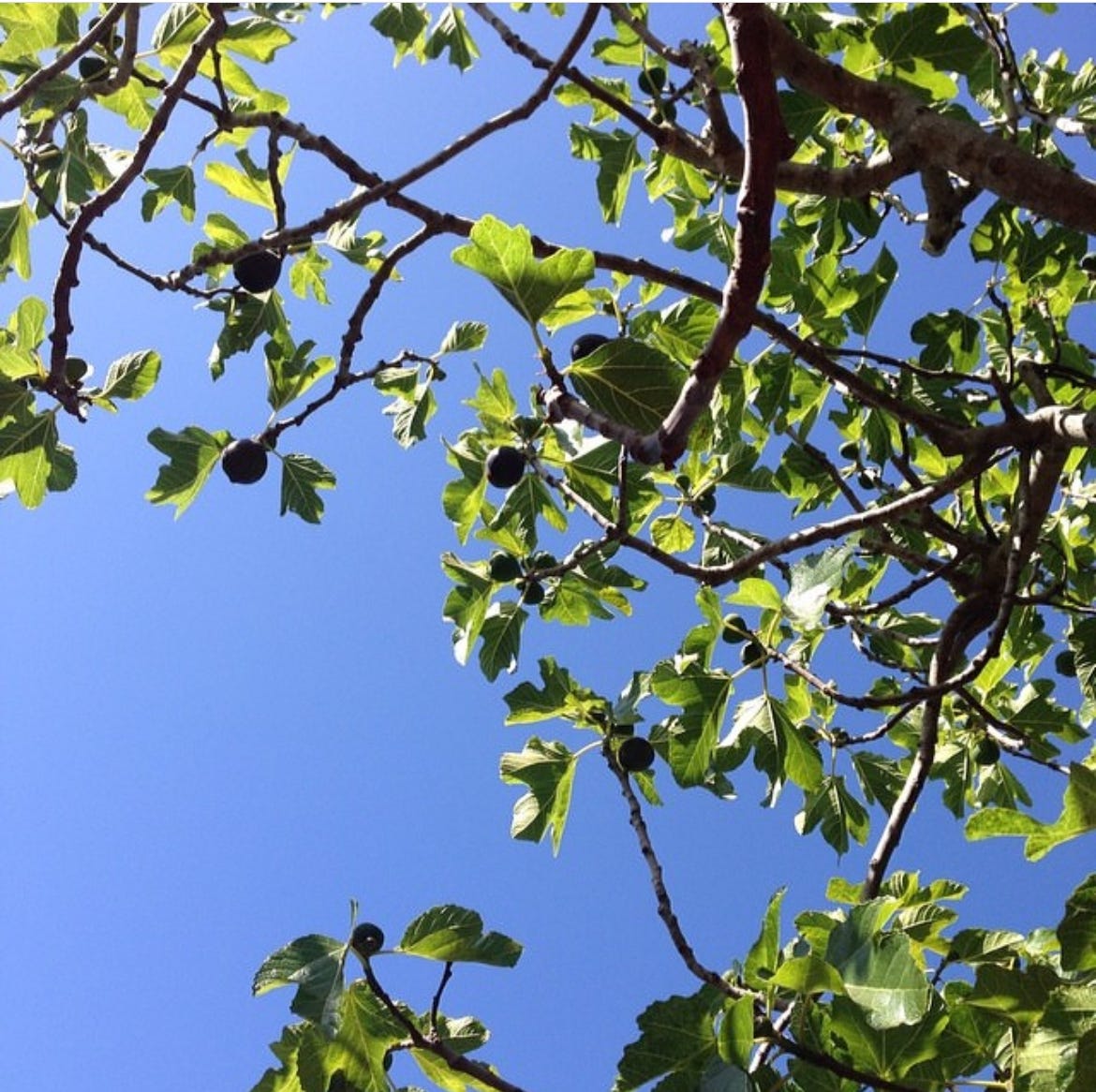
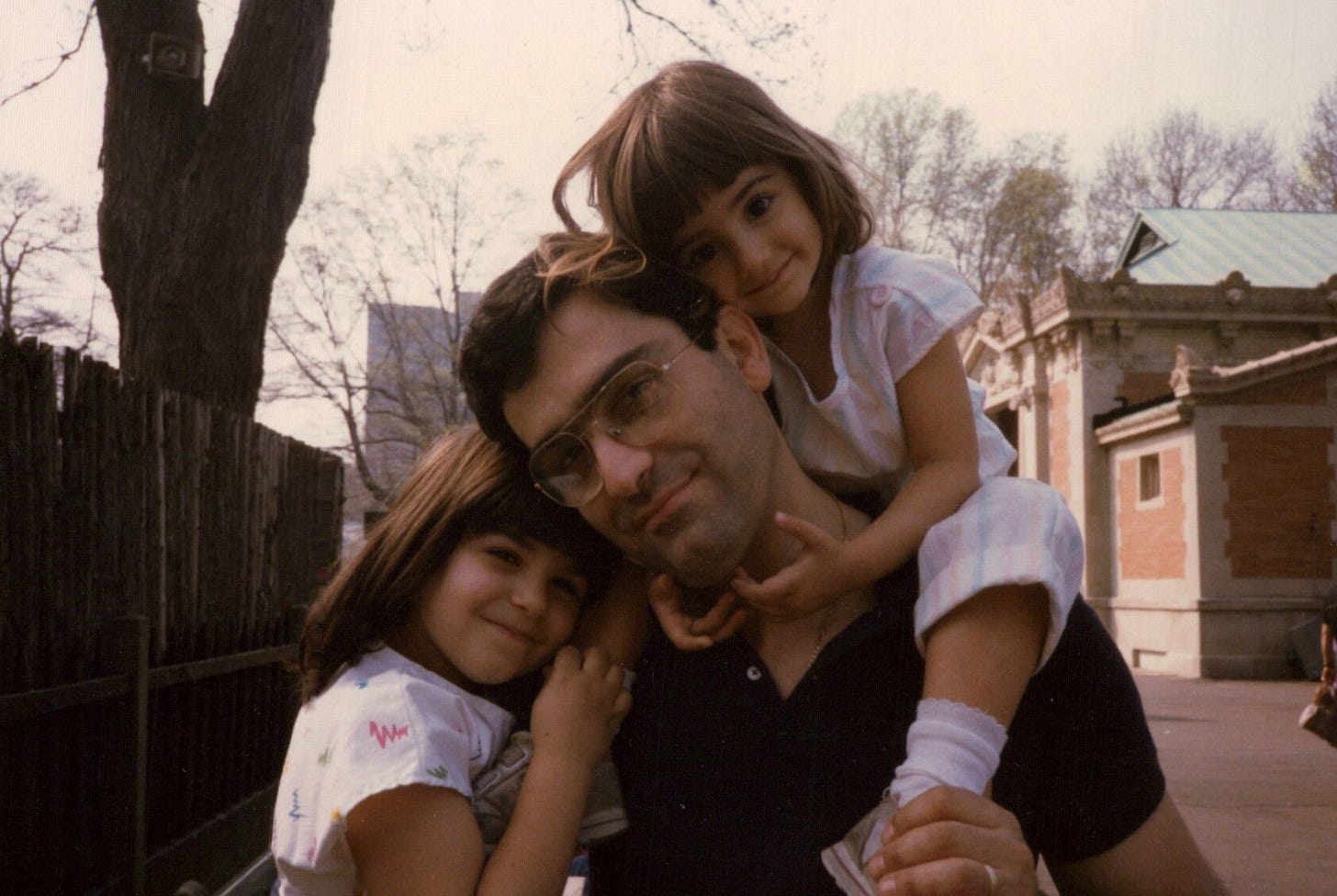
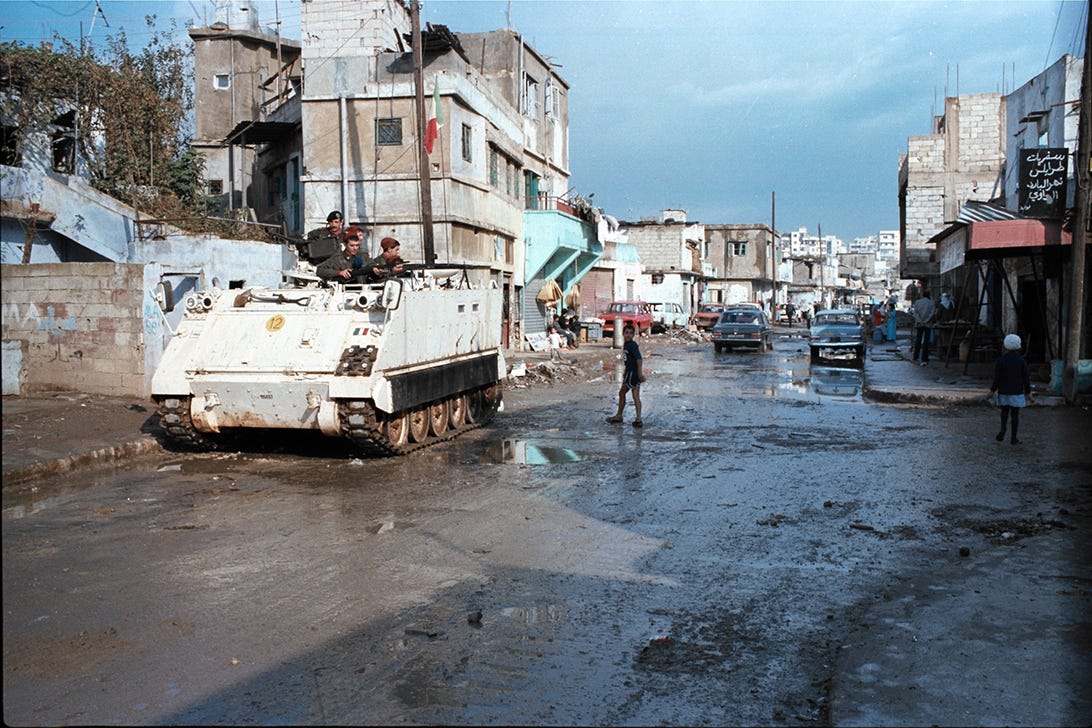
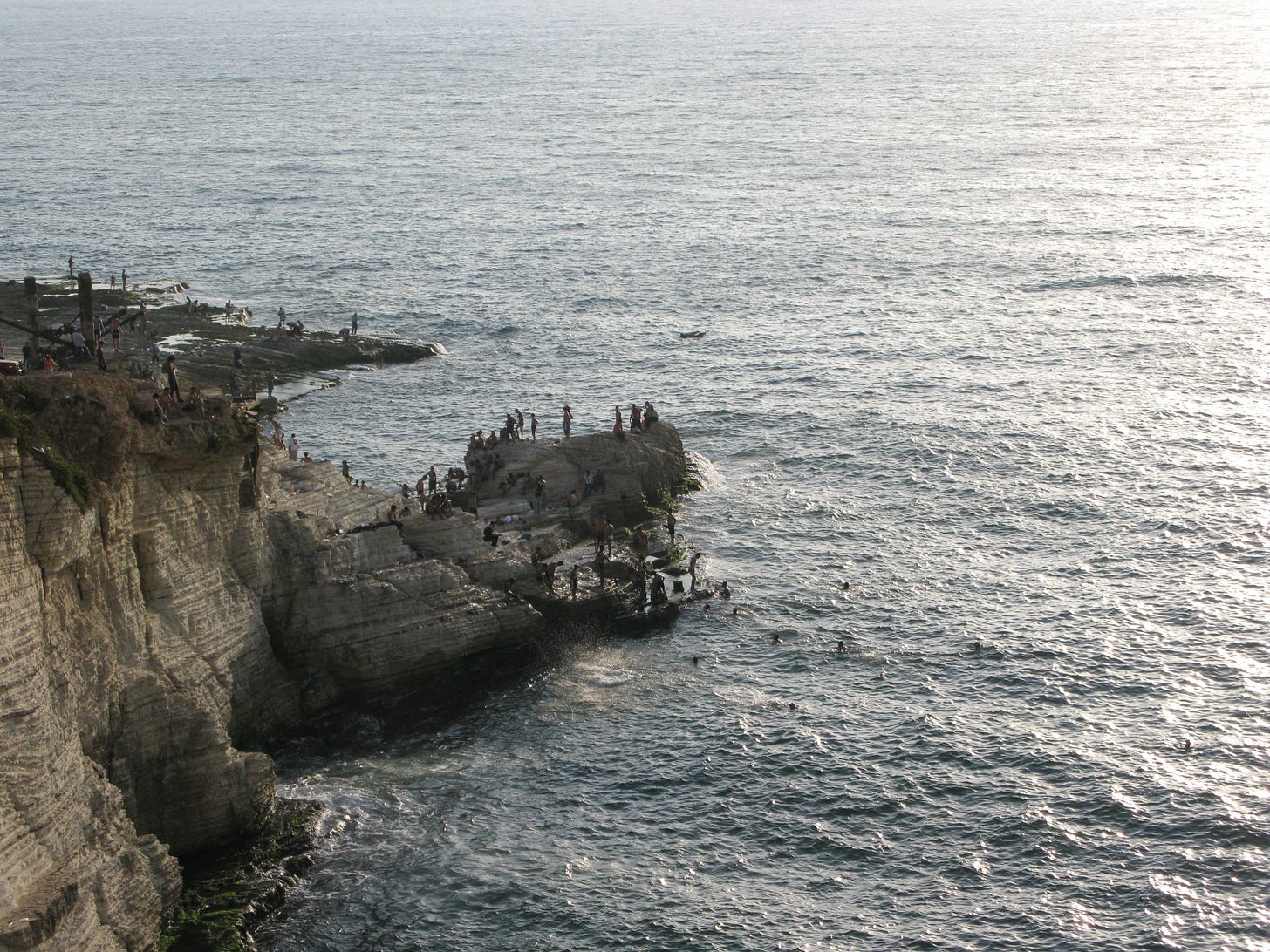
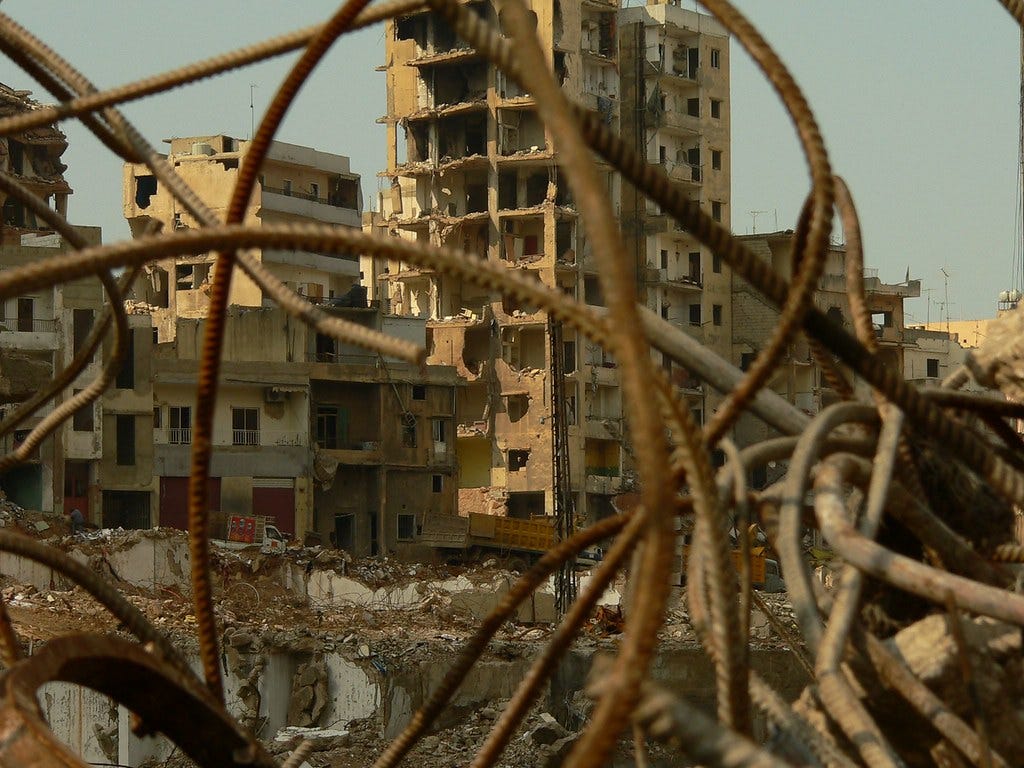
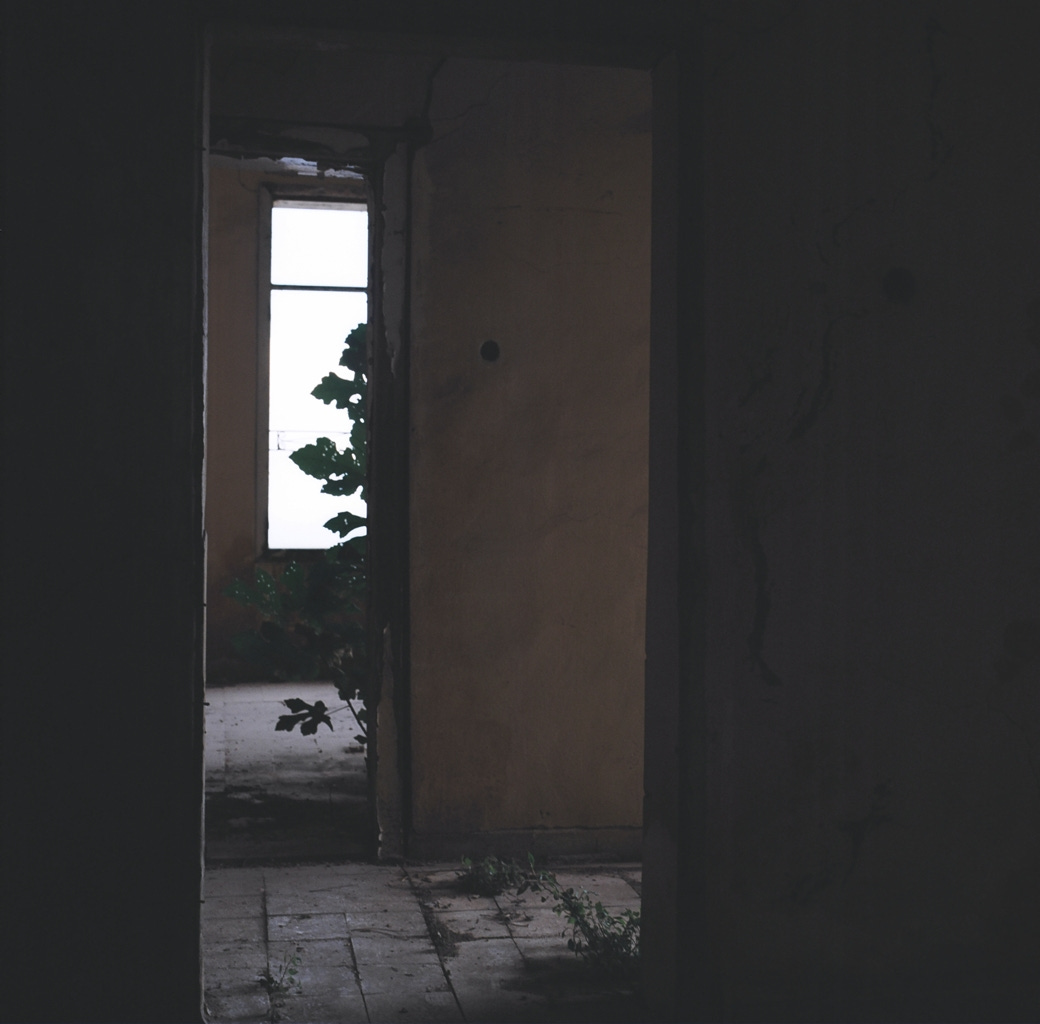

Thank you, Vera, for sharing this bitter sweetness.
I can taste those figs from here. Thank you.